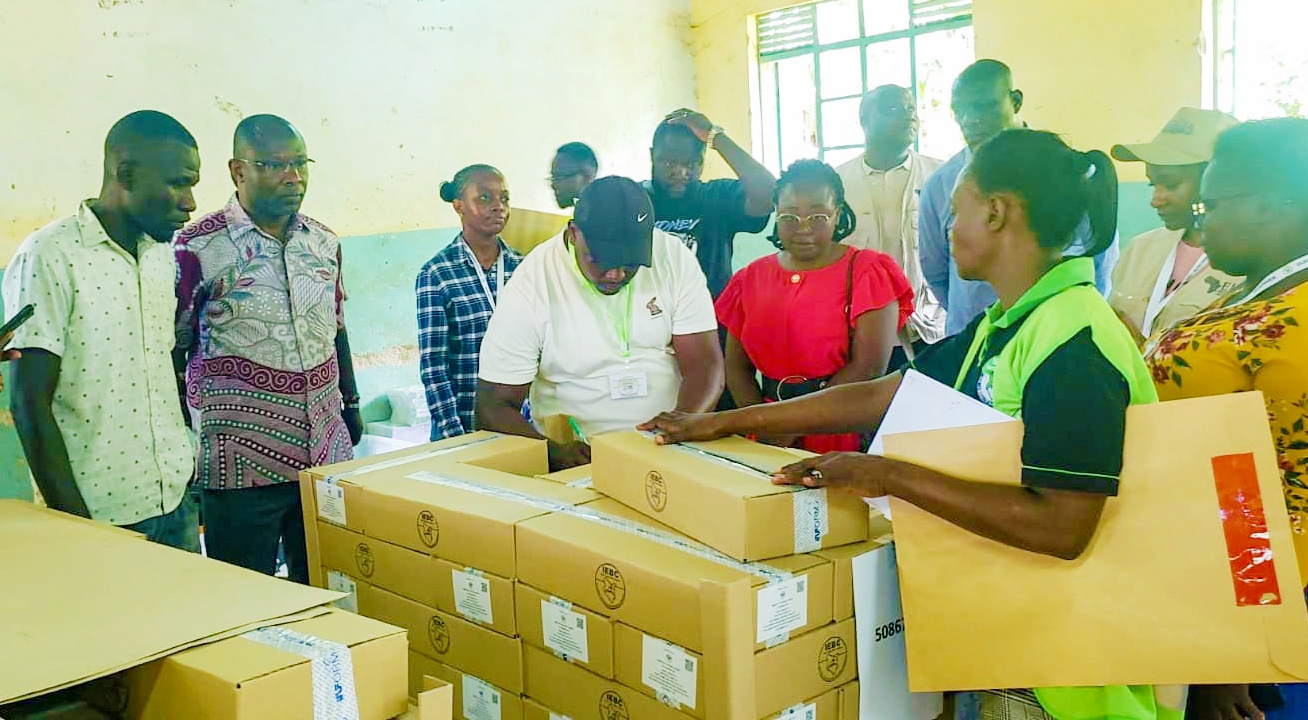Agro-pastoralists are embracing groundnut farming to help improve food and nutrition security while increasing incomes.
Agnes Esinyen, a farmer from the Kalemunyang irrigation scheme in Loima sub County in Turkana County, said she started growing groundnuts due to their nutritional value and the ready market.
She told the Star during a field event in Turkana that the two ground nuts varieties, Ndovu and Mwangaza, are highly nutritious and best sought-after in the market.
"I can sell them to make money, but most importantly, I can make flour and cook porridge for my children. I have also been trained on how to manage the crop properly to ensure it is not contaminated with aflatoxin. This is in addition to crop rotation to help enrich the soil,” she added.
A Sh300 million groundnut production initiative has been started in Turkana County with the aim of addressing challenges of malnutrition in the County as the crop is rich in proteins.
The project is being led by the County Government of Turkana with the technical support of FAO. Funding from the IKEA foundation and EU in collaboration with Egerton University, World Food Programme, KARLO, UNHCR, and Insta Products.
Carla Mucavi, FAO Representative to Kenya, said malnutrition remains a major problem in Turkana where approximately 23.3 percent to 25.6 percent of children under the age of five are stunted, 25.6 percent are wasted and 37 percent are underweight.
She attributed the high rates to chronic and acute household food insecurity and poor dietary diversity.
Speaking during a field event in Turkana last week, Mucavi said the initiative also seeks to create employment, improve incomes and subsequently improve the living standards of the smallholder farmers in Turkana County.
She said through a pilot that has been done, groundnuts have shown to have the potential to greatly improve food and nutrition security.
“Their ability to tolerate drought makes them the best for Turkana County, last but not least is the commercialization of groundnuts. The existence of extensive irrigation schemes through Turkana presents an opportunity that is already being utilized in the pilots and which will be used in the production of the groundnuts,” said Mucavi.
Turkana Governor, Josphat Nanok said the public-private partnership agreement will allow the County to put over 18,000 acres under groundnut production. This is expected to earn the County Sh2.3 billion annually in the next four years.
He assured the private sector of full support to invest in the County. He said Insta Products has committed to buy all the groundnuts produced in the County through a Public-Private Partnership arrangement.
Bernard Towett, a researcher and seed specialist at the Egerton University said aflatoxin contamination is a big challenge in the country. It is high in maize, sorghum, and groundnuts.
He noted that in groundnuts production, the situation is bad in Western region where high levels of aflatoxin have been reported in the crop.
Machakos, Makueni, Kitui, Tharaka Nithi, Meru, Tana River, Taita Taveta, Kwale, parts of Kajiado and Kilifi counties are hotspots of aflatoxin in Kenya according to the Kenya Agriculture and Livestock Research Organisation. Turkana and Elgeyo Marakwet are aflatoxin free areas.
He said aflatoxin is a fungus that exists in the soil but the levels vary and you have some soils with high levels of aflatoxin while others have less or no.
The aflatoxin level allowed in Kenya is below 10 parts per billion, anything beyond that is considered dangerous and not for for human or animal consumption.
Towett said the two varieties, Ndovu (Egerton 1) and Mwangaza (Egerton 2) that have ben introduced to the agro-pastoralists have high protein and oil content and they are preferred by the market.
“With the Mwangaza and Ndovu varieties, farmers are assured of aflatoxin free crops if they manage the crops as we have trained them,” said Towett.

















